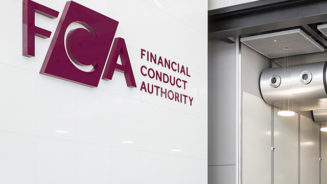Jersey has not officially announced plans to do so, but legal and trust experts familiar with the matter say it has been under development for more than six months in the Channel Island jurisdiction.
For this reason, they say, the plans are not directly related to two "conjoined" landmark Supreme Court judgments last week in the UK that formally ended the use of Hastings-Bass in most instances in which, until now, it has been used.
Those two cases, Pitt v Holt and Futter v Futter, had challenged the use of the rule in Hastings-Bass to un-do trust decisions that resulted in tax consequences for the respective clients. The cases ended up in the UK Supreme Court after a Court of Appeal decision in April 2011 that overturned the 35-year-old Hastings-Bass ruling, and found in favour of HM Revenue & Customs, which had brought the appeal.
In its report at that time, International Adviser noted that Hastings-Bass effectively had, until that point, given trustees ‘a legal “morning after pill’”.
“The Court of Appeal ruled that if trustees took poor choices based on legal or other professional advice, they cannot turn the clock back,” the IA report noted.
News that Jersey might enshrine Hastings-Bass in law came yesterday at a conference for private client specialists in London, sponsored by Jersey Finance, which represents the island’s financial services industry.
In a presentation on Hastings-Bass, Matthew Slater, a commercial chancery barrister and Treasury counsel at 3 Stone Buildings in London and an expert on trusts, detailed its practical advantages for trustees and their clients.
If Jersey does put Hastings-Bass into statute in Jersey – where it has already been in use for more than a decade – it would be the only jurisdiction globally, at least for now, to have such a law on the books, he added.
Slater began his talk by observing that “at sometime everyone in this room will have made a mistake”, and went on to note that when trustees slipped up, then – unlike ordinary people – it is their clients, rather than they themselves, who end up paying the price.
“It is because of this material distinction…that one can sensibly argue that trustees who are looking after other peoples’ affairs should be treated somewhat differently,” he added.
Slater stressed that the Hastings-Bass rule matters to the trusts industry not so much because of mistakes that trustees may have made, but because of problems which typically resulted from their failure to consider something that they ought to have considered. These, he said, often involve either a failure to consider tax implications, or taking into account the possible tax implications, but relying on tax advice which later turns out to have been wrong.
Among the advantages to Jersey, and its trusts industry, in keeping a Hasting-Bass-type law to hand is that it is typically a cheaper and more efficient way to resolve disputes that arise as a result of a trustee’s error than the alternative, which normally involves lengthy negligence proceedings, Slater noted.
For this reason, "if passed into law, [Hastings-Bass] will be another reason why Jersey should be regarded as offering distinct advantages over other jurisdictions – advantages which include greater protection for the beneficiaries against their trustees’ failings and reduced litigation costs," he added.
"We can be confident that a mistake/Hastings Bass claim will be rather cheaper, and easier to predict [the outcome of], than a hard-fought negligence claim against professional advisers. Plus, Jersey trustees’ insurance premia will surely remain lower than those in other non-Hasting-Bass jurisdictions."
Pitt and Futter cases
In its report last week on the Supreme Court’s ruling in Hastings-Bass, the STEP Journal noted that the Court of Appeal’s ruling in favour of HMRC in 2011 and against Hastings-Bass "went against a considerable amount of case law, which Lloyd LJ [the appellate court judge who gave the main judgment] considered was incorrect.
"Actions taken by trustees acting on apparently competent advice were not in breach of trust and so their actions were not voidable, he said in March 2011."
To read an official summary of last week’s Supreme Court ruling, click here.
To read an explanation of ten reasons advisers may wish to consider using a trust for their clients, click here.
To read about Swiss president Eveline Widmer-Schlumpf’s recent comments on "Anglo-Saxon" trusts, click here.




